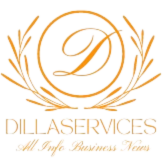
Back before the days of computers and smartphones, business cards were the only way to exchange information at a networking event. Aside from its practical purpose, the business card has also provided a way to show off your style — from the font and color scheme to the paper stock.
The short answer here is yes; business cards are definitely still relevant. But how and when they are used has undoubtedly seen a change. While business cards can still serve these functions, there are now countless digital alternatives to keeping track of contacts and displaying your brand.
Many people wonder if the old-fashioned physical card is retro, still relevant, or simply a waste of paper. This post from luminablog.co.uk will answer your question about business cards and if you should still be using them.
Branding
Most of us in business are aware of the importance of branding and consistency across our marketing channels. Everything from your logo and colours to fonts and writing style should remain consistent if you’re going to be even somewhat successful at building a brand. Your business cards are no different.
A physical business card is also a good way to show potential investors that you’re serious about your business. It may also be important when taking a loan, although we’d suggest you first compare personal loans UK reviews if you want to go this route.
You’ll most likely be giving out your business card at networking events or even to strangers you meet by chance at both business and non-business events. Because of this, your business card will often be the first glimpse someone catches of your brand so portraying your brand accordingly through your business card is essential.
Personalization
As I mentioned earlier, it’s extraordinarily simple to take out your phone and connect with someone through social media. Seemingly everyone has a LinkedIn account, for example, and we can view their contact information, their business background and even where they went to school at the touch of a button. But what’s wrong with this picture?
It’s just that virtually everyone has the same account. A business card adds a personal touch to you or your brand, and offers a tangible reminder of you that many others miss out on. And in today’s digital environment, this tangibility can be extremely powerful.
Business Cards Serve as a Reminder
Business cards also act as a reminder. A professional who took your card at a networking event, say, three months ago will be reminded of you every time they see your card on their desk. The person may not have a job opening now, but three months later when they do, your business card might spark a call from them.
Exchanging business cards is also still more professional than simply giving someone your contact information.
There’s a long, old school tradition of handing out your card and, despite technological advances, pulling out your smartphone and trading information still hasn’t replaced trading business cards.
What about Digital Business Cards?
The rise of digital business cards is seemingly unstoppable. The point of an e-business card (or digital business card) is to create a single, simple, shareable file with all of your contact details. They are usually clickable, interactive files rather than PNG or JPG images which can’t contain links.
The best way to stay on top of your competition is to get a digital version of your physical cards too. Cards give people a sense of importance and an easy way to connect. It’s not only a way to share information with a colleague, but it’s a signature kind of tool for your employees to feel like part of your organization.
